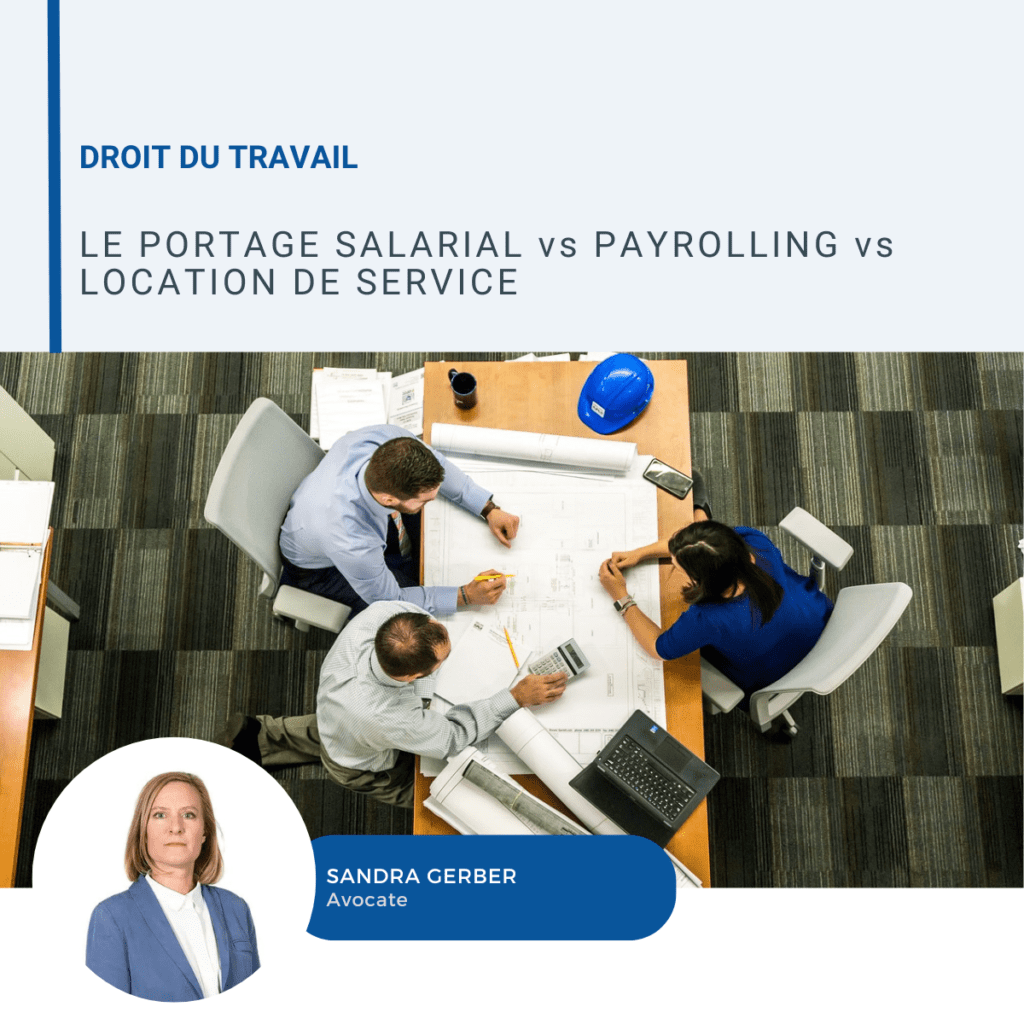WORKATION: what is it? and what does Swiss law say?

With the festive season approaching, some employees may be tempted by the ‘workation’. But what does this mean? Is it regulated under Swiss law, and how? The term ‘Workation’ is a contraction of ‘Work’ and ‘Vacation’. The principle of ‘Workation’ is to work, not in the office or at home (this is known as ‘Home-office’ […]
PORTAGE SALARIAL vs PAYROLLING vs HIRING SERVICES

The ‘portage salarial’ model, which originated in neighbouring France, is increasingly being offered in Switzerland. Can this model be transposed unchanged to Switzerland? Can it be likened to ‘payrolling’ or ‘service leasing’? This article answers these questions. In France, the “portage salarial” model first appeared in the late 1970s. Since 2008, it has been expressly […]
Reduced working hours (RHT) before and after Covid

A few weeks ago, the Federal Council has decided to increase the maximum duration of compensation for reduced working hours from 12 to 18 months. This decision is an opportunity to remember that while RHT, or reduced working hours, was much in the news during the Covid pandemic, it already existed before Covid. Swiss companies […]
Is it possible to have a secondary activity in parallel with your salaried activity and what do you have to keep in mind ?

Swiss law allows employees to hold several jobs at the same time, and in particular to pursue a secondary activity in parallel with their salaried activity. However, both employers and employees must pay particular attention to the following points. A. General Generally speaking, employees are free to pursue a paid activity in parallel with their […]
Garden leave or no garden leave?

When an employer decides to make an employee redundant, the question often arises of whether or not the employee should be released from the obligation to work, or what the English-speaking world calls ‘garden-leave’. In some sectors (particularly banking and finance), garden leave has become the rule in Switzerland. Garden-leave is also increasingly the subject […]
The internship or traineeship contract: should it be paid or not?

As the end of the school and university year approaches, many people are looking for summer internship or internship lasting several months to gain knowledge and experience. But what is the status of these internship and of the internship contract from the point of view of employment law? Should they be paid or not? A […]
Federal Court ruling of 30 August 2023 on the closure of companies during the COVID-19 pandemic and employer’s liability: legal value of SECO recommendations, directives and FAQs.

The Federal Court’s ruling of 30 August 2023 (4A_53/2023) has already caused a stir and has been the subject of numerous comments by Swiss authors and lawyers. In this ruling, the Federal Court defines for the first time the notion of economic risk to be borne by the employer. It considers that the company closures […]
Older workers in Switzerland and protection against dismissal

A decision of the Swiss Federal Supreme Court rendered on 15 May 2023 (4A_117/2023) provides an opportunity to revisit the issue of the protection of older workers against dismissal under Swiss law. This issue has been the subject of a number of court decisions, which might suggest that it is no longer possible to dismiss […]
HOLIDAY PAY: A REAL HEADACHE FOR EMPLOYERS?

As the summer holidays approach, it is worth considering the issue of holidays and especially holidaypay, which can be a real headache for employers and HR managers. According to Article 329d paragraph 1 CO, “the employer shall pay the employee the full salary for theholidays and a fair indemnity to compensate for the salary in […]
The recent newspaper articles mentioning that many apprentices “drop out during their apprenticeship” and “break” their contract before the end of the term are an opportunity to come back to this particular employment contract in Swiss law and to give a brief reminder to both employers and apprentices.
The apprenticeship contract has the particularity of being governed by both private and public law provisions. As regards public law provisions, at federal level, the apprenticeship contract is governed by the Federal Law on Vocational Training (LFPR) and its implementing ordinance (OFPr) The LFPR recalls that “vocational training is the joint task of the Confederation, […]

